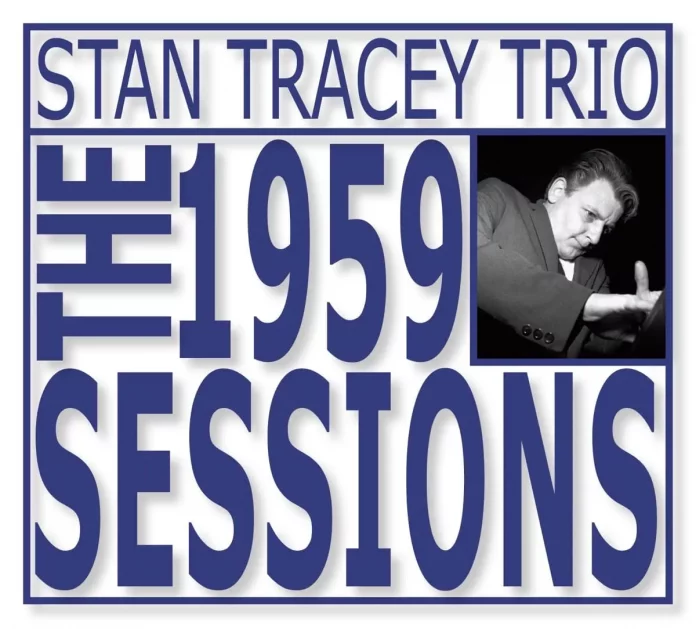These recordings were found serendipitously during a clear out of studio premises and very nearly became the Lost Forever Sessions. We would never have known what gems we had missed.
At the time of these sessions Tracey was nearing the end of a stint in the Ted Heath Orchestra, which had included a tour of the USA with Carmen McRae. Whilst he had no love for most of the music he had to play with Heath the job did provide a regular income and an outlet for some of his contributions and arrangements, and he was featured as soloist on vibes as well as piano. He made his first album as leader, a programme of standards under the title Showcase, then recorded a trio album, Little Klunk, with Napper and Seamen, just a few weeks before the sessions featured here.
For many (maybe younger) listeners the exceptional quality and reputation of Tracey’s suites for various-sized ensembles (including Under Milk Wood and The Salisbury Suite) have tended to eclipse his more basic recordings and his achievements as house pianist at Scott’s club for several years, impressing giants such as Sonny Rollins who once challenged an audience on whether they appreciated how good Tracey was.
Over the years it was common to put Tracey down as merely a Thelonious Monk imitator. It is true that his admiration for Monk and Duke Ellington were evident but, as Brahms said when the similarity between his music and Beethoven’s was mentioned: “Any fool can see that.” Echoes of his heroes aside, Tracey’s playing was shot through with an individual vision.
In the notes to this album Alyn Shipton mentions asking Tracey if he consciously led the London scene’s move towards bebop. Tracey said: “Not really, I just went along with what was happening.” He may not have led, but he certainly contributed much. His openness and adventurousness really came to the fore when he worked with altoist Mike Osborne in a much freer idiom in the 70s. He went on to play with others, including Evan Parker, in a similar context.
The first session consists of four standards examined from Tracey’s quirky but cogent perspective, whilst the second showcases four appealing Tracey originals. It almost goes without saying that Napper is excellent on both sessions and, equally reliably, Crombie and Seamen provide strong support. Street Of Themes provides a rare treat – Tracey soloing on vibes. I’ve seen a couple of comments suggesting that the sound quality, whilst acceptable, is not great. It sounds more than adequate to me, but then maybe I was too busy listening to the music. The richness of Tracey’s harmonies and the crispness of his spiky, spry melodic lines is always clear, and the balance between the instruments is just right.
Discography
(1) Sometimes I’m Happy; Just You, Just Me; Moonlight In Vermont; Jumpin’ With Symphony Sid; (2) Mood 13; Little Girl Sadly; Street Of Themes; Pitter Patter Panic (36.16)
Tracey (p); Kenny Napper (b); Tony Crombie or Phil Seamen (d). London, 5 & 8 June 1959.
ReSteamed Records RSJ116
















